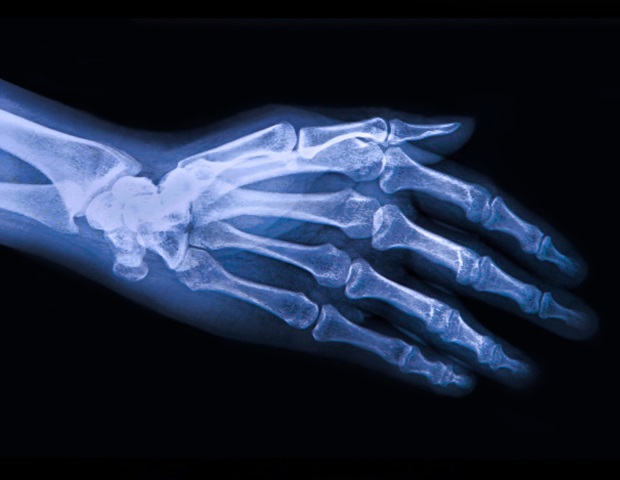
In an evolving health landscape, emerging research continues to highlight concerns that could impact everyday wellbeing. Here’s the key update you should know about:
A procedure performed under mild sedation in less than two hours by an interventional radiologist relieves chronic knee pain caused by osteoarthritis, an NYU Langone Health study shows.
As they gradually break down, knee joints in people with osteoarthritis are known to become inflamed, which triggers the growth of small blood vessels (angiogenesis) and increased blood flow to joints. The study procedure, called genicular artery embolization, kept this abnormal blood flow from ferrying in immune cells that cause the inflammation and related pain.
For the new study, the researchers delivered chemical beads (biocompatible hydrogels) through an image-guided plastic tube to block blood flow in any of a half-dozen arteries feeding the synovium lining in the knee. More than 60 percent of the 25 men and women who had the procedure at its facilities in Manhattan experienced significant improvements one year later.
Results of the study published online Aug. 12 in the Journal of Vascular Interventional Radiology.
“Our study shows that genicular artery embolization is a safe and effective, minimally invasive treatment for those with moderate to severe symptomatic knee pain tied to osteoarthritis,” said study co-investigator and interventional radiologist Ryan Hickey, MD. “This work also provides evidence that genicular artery embolization is offering more than just pain relief and could be modifying the diseases process itself.”
“This procedure is particularly suited to those patients who are either not yet ready for knee replacement surgery or for whom surgery is not an option because of age or other risk factors, such as obesity, uncontrolled diabetes or heart disease, or smoking,” added Hickey, an associate professor in the Department of Radiology at NYU Grossman School of Medicine, where he also serves as section chief of vascular and interventional radiology.
He says there is urgent need for alternative, less-invasive treatments for osteoarthritis. An estimated 24 million cases of osteoarthritis in a knee are diagnosed each year in the United States, a number he expects only to grow with the aging population.
Among the study’s other key results were significant, one-year postsurgical declines (on average 12%) in blood levels of vascular endothelial growth factor (VEGF), a protein that is needed to stimulate the formation of new blood vessels. Past research has also linked VEGF to other structural changes in the knee from osteoarthritis. Another protein biomarker, interleukin 1 receptor agonist (IL-1Ra) showed a similar decrease (15%). IL-1Ra is known for its role in countering inflammation. Tests of a half-dozen other immune molecules involved in inflammation were inconclusive.
Our research suggests that declines in vascular endothelial growth factor could serve as a valuable biomarker or chemical trace for determining success with genicular artery embolization, offering a much-needed objective benchmark by which to measure its effectiveness.”
Bedros Taslakian, MD, MA., study principal investigator and lead author
“Our study findings also indicate that genicular artery embolization may, if further larger clinical trials prove successful, slow down the progression of osteoarthritis by observing significant decreases in signaling proteins, specifically vascular endothelial growth factor and interleukin 1 receptor agonist, one year after the procedure,” said Taslakian. Formerly an associate professor in the Department of Radiology at NYU Grossman School of Medicine, Taslakian is now vice chair for research in the Department of Interventional Radiology at the University of Miami Miller School of Medicine in Florida.
The improvements seen in the 25 patients in the current study were captured by standard patient survey scores for knee pain, stiffness, and the ability to bend, stand up, or walk up and down stairs freely. While subjective surveys are useful in monitoring disease progression, Hickey says, independent blood tests like the NGF measure are more accurate and convenient for patients for tracking small declines or improvements over time.
The NYU Langone team has plans to further investigate precisely how embolization alleviates inflammation and leads to pain relief.
Hickey also says that more research is needed to establish how long the procedure’s benefits last and which osteoarthritis patients are most likely to benefit.
All study volunteers were diagnosed with moderate to severe osteoarthritis in the knee that had been unresponsive to first-line therapy. This includes knee injections of corticosteroids to reduce inflammation; fluid aspiration (arthrocentesis) to remove excess fluid from the joint; and injections of platelet-rich plasma to repair damaged tissue; as well as physiotherapy. Study participant ages ranged from 50 years old to 78 years old, with all having their embolization procedures performed between January 2021 and January 2023.
As part of the procedure, interventional radiologists accessed each patient’s arteries through a small incision in the thigh, using video x-ray to guide the catheter to the precise knee artery selected earlier for embolization. Study participants were then monitored during routine checkups for at least one year and across two-dozen measures of pain, knee stiffness, and their ability to move about. Patients needed to achieve a four-point difference on a scale of 20 points to establish a clinically significant reduction in pain. Side effects from the procedure, the researchers say, were minimal and limited to dark skin blemishes on the knee and mild pain near the incision site.
Funding for the study was provided by NYU Langone.
Besides Hickey and Taslakian, NYU Langone researchers involved in the study are co-investigator Mukundan Attur, PhD; Erin Alai, MD; Jonathan Samuels, MD; William Macaulay, MD; Danibel Ramos, RN; Shu Liu, MD; and Elizabeth Morris, MD.
Source:
Journal reference:
Taslakian, B., et al. (2025). A Prospective Single-Arm Trial of Genicular Artery Embolization for Symptomatic Knee Osteoarthritis: Clinical and Biomarker Outcomes. Journal of Vascular and Interventional Radiology. doi.org/10.1016/j.jvir.2025.08.009.

